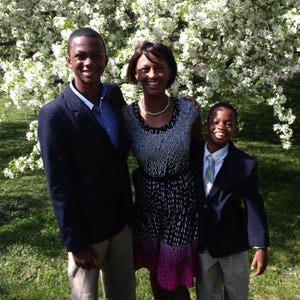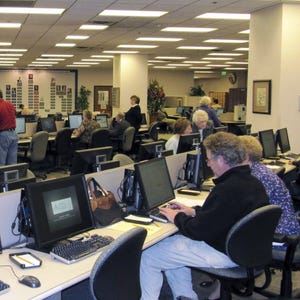NEW DNA SEARCH FEATURE LAUNCHED BY ANCESTRY.COM
Would you spit in a tube and spend $99 to find out you were related to a famous 18th-century revolutionary or a notorious 19th-century bank robber?
That’s the latest genealogical lure posed by Ancestry.com, one of the Web’s longest surviving dot-coms. Ancestor Discoveries, which launches today, promises to provide roughly 30% of consumers with introductions to relatives from centuries past, with details about their lives and connections to other living relatives.
“It’s the biggest leap forward for us yet, leveraging nearly a million DNA profiles we already have in our system,” says Ancestry.com CEO Tim Sullivan, whose company is headquartered in Provo, Utah, but has growing offices here.
“As we see it, there are two markets for this sort of thing, one is the people who already love genealogy and the other is those who are simply saying, ‘Tell me who I am,'” says Sullivan. “Family history is never really done. With every generation you go back, you have that much more context for your own story.”
Ancestry.com got into the digital game in 1990 when two Brigham Young University students began selling floppy disc-filled genealogical information to fellow Mormons.
It has since gone through a variety of tech-age cycles. The company went public in 2009, only to be taken private again two years ago after being purchased by European private equity firm Permira.
Last year, it generated $620 million in revenue anchored to 2.2 million monthly subscribers, in addition to its $99 DNA kit, which breaks down an individual by ethnicity and then provides a network of possible relatives.
Sullivan says that he feels health disclosures through DNA testing will ultimately be a part of the company’s business plan pending Food and Drug Administration approval, a move that would put it in competition with genetic-testing pioneer 23andme.com. But many consumers remain gun-shy about hearing bad family medical history news.
“The FDA will have a lot to say about how you can communicate health discoveries to users, and of course you’ll also just be able to opt out,” he says. “But there are positives, such as learning about things before they happen, much like what Angelina Jolie has been pushing.” The actress has had a series of pre-emptive surgeries after learning she was genetically predisposed to breast and ovarian cancer.
There’s little doubt genealogy has shifted from being the pastime of few to a passion of many. There are four TV shows catering to the subject on PBS as well as TLC.
“The reason for the boom in interest over the years is partly due to the fact that so many Census and other such records are now instantly available online, which makes a search so much easier,” says Kenyatta Berry, co-host of PBS’ Genealogy Roadshow, now in its second season. (USA TODAY)




